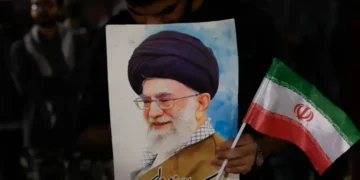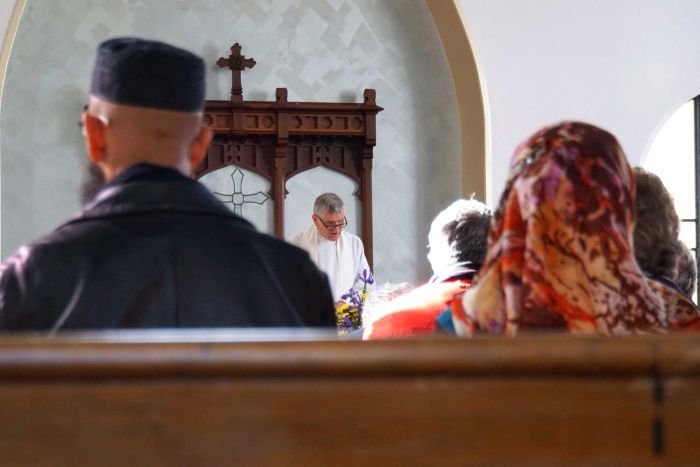Zainab Ahmad Born in New York City in 1980 to emigrated parents from Punjab, Pakistan, Ahmad grew up in suburban Nassau County, Long Island, with her father and stepmother, also spending time living with her mother in Manhattan and summers in Pakistan and England.
She initially planned to study hospital administration majoring in health policy at the New York State College of Human Ecology at Cornell University but after the September 11 attacks, she changed course and receiving her B.A. from Cornell in 2002. She attended Columbia Law School receiving her J.D. in 2005. She began her law career in 2006 as a law clerk for Judge Jack B. Weinstein of the United States District Court for the Eastern District of New York and for Judge Reena Raggi of the United States Court of Appeals for the Second Circuit.
Ahmad married to a lawyer from Jordan before getting divorced. Ahmad is a Muslim and says that “the primary relevance of my ethnic background to the work I do is its irrelevance”, citing the rejection of terrorism by “the broader American-Muslim community”.
Zainab Ahmad is an American prosecutor with the United States Department of Justice who specializes in investigating and prosecuting terrorism. She built her reputation by pursuing high-profile terrorism convictions. She has fought 13 such cases and is yet to lose a case. She served as an Assistant United States Attorney of the Eastern District of New York until 2017, successfully prosecuting several high-profile terrorism cases. The New Yorker related:
Ahmad’s specialty is counterterrorism, her subspecialty “extraterritorial” cases, which means that she spends a great deal of time overseas, negotiating with foreign officials, interviewing witnesses, often in prison, and combing the ground for evidence in terror-related crimes against Americans. She spends time in American prisons as well, typically with convicted jihadists. A former supervisor of Ahmad’s told me that she has probably logged more hours talking to “legitimate Al Qaeda members, hardened terrorist killers,” than any other prosecutor in America.
Some of Ahmad’s high profile cases are following. One of her pursuits was against Alhassane Ould Mohamed, who was charged with murdering an American diplomat in Niger in 2000. She had 18 witnesses flown into the US from Niger and Mali to press charges against him.
In November 2015, it was because of Ahmad that a Pakistani man, Abid Naseer was arrested in connection with an Al Qaeda plot in Britain.
“We were a bit desperate before Zainab showed up here,” a British police officer told The New Yorker. “When Zainab walked into the room, we said, ‘Crikey, she looks awfully young. Is this a junior sent here to fact find? He added.
“Within a few minutes, though, it was, like, ‘Whoa, she knows what she’s doing.’ There was no comparison with UK prosecutors. Zainab stayed four days with us on that first visit, and left us a big list of evidence she wanted, and exactly how she wanted it packaged up.”
Assistant US Attorney Zainab Ahmad delivered her closing arguments at the trial against Abid Naseer.
Her stellar reputation among prosecutors at the Eastern District of New York was bound to attract the attention of Washington. And when her boss Loretta Lynch took over as the attorney general, she sent for Ahmad to the head office.
She has returned to the Eastern District after the new team of President Donald Trump and attorney general Jeff Sessions took over, back to wrestling with extraterritorial counter terrorism.
But the country has changed too, Ahmad told The New Yorker. “If I were fifteen now, growing up where I did, I don’t know. Everything’s changed,” meaning the level of mistrust that Muslims in America face, according to the magazine.
Abdul Kadir and Russell Defreitas are seen in a courtroom sketch on trial in Brooklyn, N.Y. They are accused of a plot to attack John F. Kennedy International Airport in 2007.
Pakistan, she said growing up she couldn’t find it on the map when asked at school. She would be embarrassed but felt better because even teachers could not.
But now, Pakistan is closely identified with terrorism in American public memory, especially since May 2011, when Osama bin Laden was killed in his hideout in Abbottabad.
“I’d kind of like to go back to a time in America when teachers didn’t know where Pakistan is,” Ahmad said.
Courtesy by The New Yorker and detail Article in The New Yorker




















